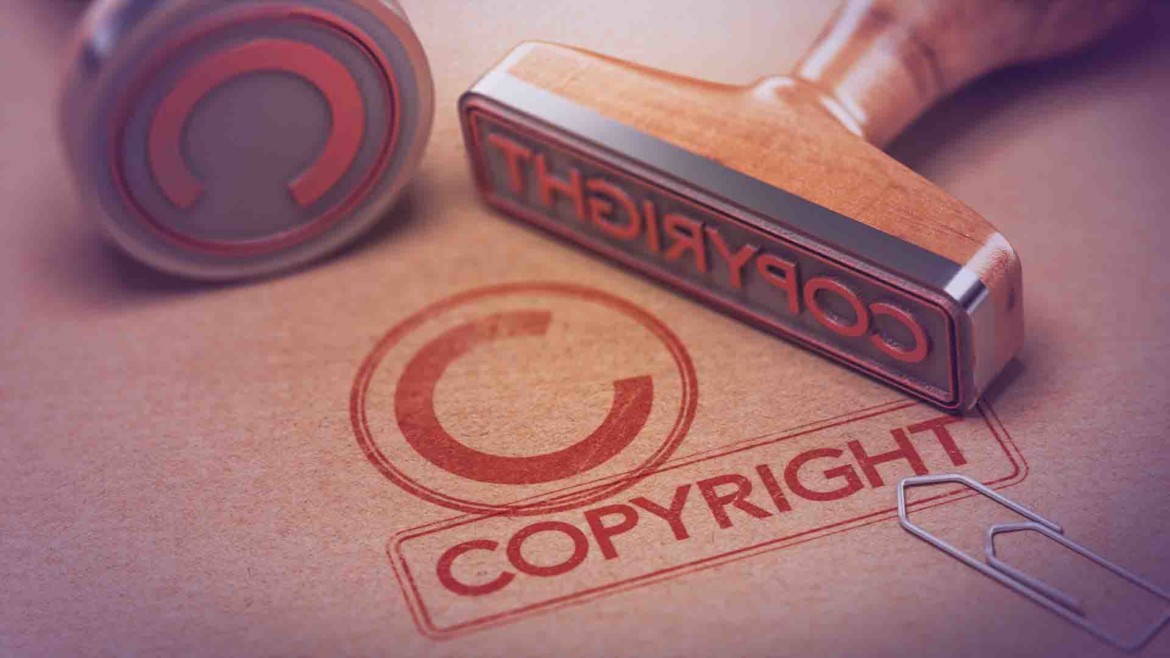German copyright law is complicated. Fundamentally, it protects intellectual property. In the case of music, this includes compositions published under a title, whether pure instrumental music, pure singing, both together, or simply arranged sounds that do not follow any harmony theory in the classical sense. However, publication is not a mandatory criterion. In fact, copyright already takes effect when a piece has been performed in front of an audience. If a person from the audience were to perform or publish the piece from memory, this would already constitute an infringement of copyright. This must of course be proven.
In Germany, the copyright or the right of exploitation lies exclusively with the authors themselves and cannot be sold. In America, for example, this is different. The Beatles’ exploitation rights could be bought by Michael Jackson. That would not be possible in Germany. Here, however, the authors can grant rights of use. And that’s where things start to get complicated.
NO MUSIC WITHOUT A LICENSE

© Dayne Topkin
As a general rule, anyone who wants to listen to or use music needs the permission of the copyright holder. The purchase of a phonogram would be such a consent. Therefore, the purchase of a record is less about its materiality and more about the playback license that allows the buyer to hear the piece. In the case of the record, of course, the license is tied to the record itself. If it breaks, the license expires. In the digital space, things are usually a bit different today. If digital files are purchased via iTunes or Bandcamp, they can be downloaded as often as desired. The license was purchased virtually independently of the file.
In this private space, everything is still quite simple. Usually there is a label that has acquired the rights of use from the authors and in this course may publish and reproduce the music. However, the artists can also simply do this themselves, which is now very easy and uncomplicated via platforms such as Bandcamp.
If the authors assign the rights of use to a label, there are three common types of contracts. 1) The artist exclusive contract, in which the artists grant the rights to use all future works to the label. In return, they are usually supported financially during production and receive a fee. 2) The band takeover contract, where an already finished product is licensed. The label pays a fee and agrees to publish the works. Very common today is 3) the 360° contract, where the label acquires shares in all the artists streams of revenue such as concerts, merchandising, etc.
Commercial Means complicated
Things get complicated when third-party music is to be used for public-commercial purposes. Then, in addition to the authors and labels, music publishers and collecting societies are suddenly important too.
Music publishers license the actual composition or the original lyrics of a musical work. This becomes relevant in the case of cover versions, for example. If a band plays a cover version of Daft Punk’s “Get Lucky” at a concert, the creators of that piece get royalties that the band or venue must pay off. The label, in this case Columbia Records, gets nothing because they only own the rights to the recording, not the composition itself. In this case, they are held by the two Daft Punk members G.M. de Homem-Christo and Thomas Bangalter, as well as Pharrell Williams and Nile Rodgers. All four receive royalties when their composition or lyrics are performed in public.
The collecting societies such as GEMA represent the rights of the artists who are members of them. They collect the royalties and pay them to their members. However, this is often handled by the venues, which may have certain contracts with GEMA. Music publishers are also members of a collecting society. They take care of the settlement with GEMA for all authors published with them.
If several authors are registered for a piece, they can be represented by different publishers. The collecting society must then settle the royalties for the same piece with different publishers. In the example, the two Daft Punk members are of course with the same publisher. However, this does not have to apply to Pharrell Williams.
One song needs many licenses
Cover versions may be performed without licensing as long as royalties are paid afterwards. But if I want to use a very specific recording for a movie, I have to find out where the rights to that recording are and negotiate that license for its use. This is where the label intervenes again, since it has the rights to the recording.
Universal Music Publishing Group is a music publisher and gives a catchy example for explanation, which will be adopted here: The song or composition “White Christmas” was written by Irving Berlin, so he is the author. The rights to the song can be obtained from the aforementioned publisher. If I want to use the version by Bing Crosby, I must also license the rights to the recording, which in this case are held by the Universal Music label. However, if I like the version by Michael Bublé best, I need the rights to this recording, which in this case are held by Warner Music. If, as in our example, several authors from different publishers are involved, the rights must be requested and negotiated individually with all the publishers involved.
In some cases, such licensing can be very time-consuming because certain rights have not been clarified or authors cannot be found. The cost of such licensing depends entirely on the context in which the piece is to be used. Here, duration, frequency and range play important roles.
Royalties in the stream
Streaming platforms also have to obtain licenses before they are allowed to offer the music on demand. For a long time, Radiohead’s music, for example, was not available on Spotify because the band rejected the royalty system. Since the copyright lies with the band itself, they were able to refuse this license. In the meantime, however, the band around Thom Yorke has given in and released their music.
The days of the free Internet are definitely over. But there are still platforms where there is no accounting of royalties. That this will probably change in the future is shown by the example of the dispute between GEMA and YouTube a few years ago. GEMA had represented the interests of its members and demanded royalties from YouTube for the music played there. The dispute lasted several years and was partly settled in court. For a long time, it was not clear whether YouTube as a platform could be held liable at all for the content of its users. This has now been clarified and the answer is yes. In the end, both sides came to an agreement. Now YouTube pays GEMA, and the streamers and content creators can freely use the music of the authors represented by GEMA. It is not known how much YouTube will pay.
Similar agreements are still pending for other platforms. Twitch is currently negotiating intensively with the US music industry. Perhaps similar battles will soon be fought in Europe, because many streamers use music that is currently not licensed.
Music law is extensive and this is only a small overview that does not claim to be complete.
You can read about the topic of film and photo law in our article Copyright – How film and photos are protected.






1 reply to the article